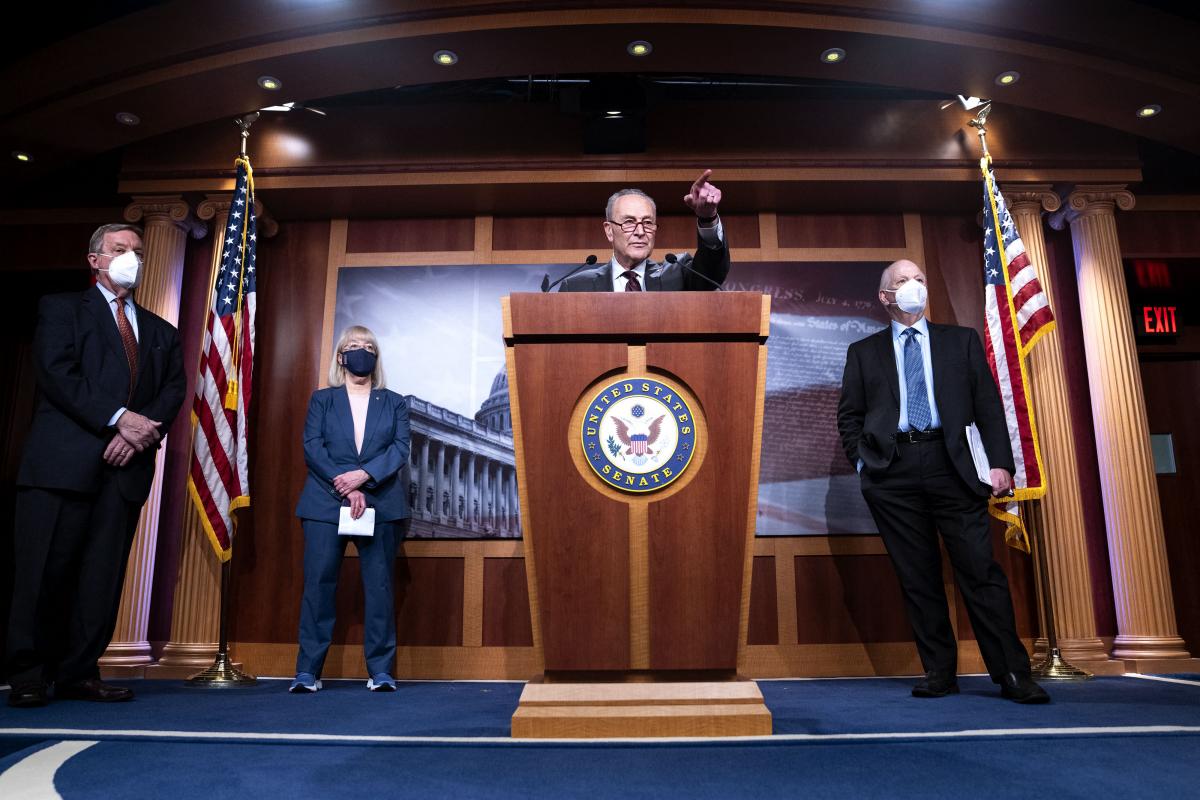
Over 350 academics joined as signatories on a letter in support of filibuster reform in the U.S. Senate, with hopes that a clear history of the parliamentary procedure can better inform the debate surrounding its future.
The Open Letter on the History, Impact, and Future of the Filibuster -- organized by the nonprofit organization Protect Democracy -- brought together historians, political scientists and other scholars to clear up misconceptions about the filibuster.
“Historians don't usually weigh in on every current policy issue, because history doesn't really tell us what we should do in the present -- it just informs,” said Seth Cotlar, a history professor at Willamette University and signer of the letter. “But the discussion around the filibuster always seemed to contain a bunch of assumptions about the history of the filibuster that were pretty incorrect.”
The filibuster allows senators to block or delay action on a bill through debate that can only be ended by a 60-vote supermajority -- except in the cases of executive branch and federal judicial appointments, budget resolutions, and trade agreements. Because Democrats hold a slim majority in the Senate with Vice President Harris as the tie-breaking vote, calls to reform the filibuster have grown, with President Biden also endorsing the idea. But the Democrats still lack the votes to make substantial changes -- more moderate members of the party, such as Senator Joe Manchin of West Virginia, aren’t yet on board.
Any bill without considerable bipartisan support is likely to be filibustered to prevent further action, such as the DREAM Act -- which would provide a pathway to citizenship for undocumented immigrants who were brought to the United States as minors -- full reauthorization of the Higher Education Act, or legislation that would provide free four-year college or widespread cancellation of student loan debt.
Grant Tudor, policy advocate at Protect Democracy, said the organization's officials set out to close the information gap when they noticed a difference between public discourse and what scholars wrote and said about the filibuster. The result was a letter with three key messages: the filibuster isn’t original to the Constitution, its existence is weakening Congress and the status quo is posing a risk to democracy.
The letter states the framers of the Constitution "explicitly rejected a supermajority requirement for common legislation" and notes the filibuster wasn't developed until the early 19th century, partly by pro-slavery senators who wanted to protect slaveholder interests. The consistent need for a supermajority to pass routine legislation has only emerged in recent decades, contributing to decreased legislative productivity and a shift in policy making from the legislative branch to the executive branch, according to the letter.
“Having a good-faith debate requires relying on a shared set of facts,” Tudor said. “It was our intention that a letter from scholars and historians who have long studied the filibuster would contribute to that.”
But it's much easier now to end debate -- or invoke cloture -- on a bill than at any other point in American history, said Thomas Jipping, a senior legal fellow at the conservative think tank the Heritage Foundation. Ending debate used to require unanimous consent during the 19th century, and by 1917, it required a two-thirds vote. The filibuster also isn't a 100 percent blockage of a bill, said Jipping -- senators from the majority party choose how to respond to a filibuster, and it provides an incentive for them to work with the members of the minority party on a compromise.
"People who want to condemn extended debate itself -- and it sounds to me from the letter that these scholars are a part of this -- they're not pointing the finger in the right direction," Jipping said. "The problem is not Senate rules. The problem is senators."
A total of 356 academics from colleges across the country signed the letter, a number that partly surprised Tudor.
“It's really hard for a few scholars to agree on an ostensibly controversial topic, never mind hundreds of scholars,” Tudor said. “One of the things that really struck me and struck our team was how unusual it was to have such broad-based agreement on this particular issue.”
For Cotlar, it was a “no-brainer” to sign on, especially after reading how clearly the letter made the case for reform.
“This is the tool that I have in my toolbox, which is that I've studied American history so I know some stuff about it and maybe that gives me some standing with some of my fellow citizens,” he said. “I felt like it was the least I could do.”
Robert Taber, a signatory of the letter and an assistant professor of history at Fayetteville State University, said he hopes the letter helps to move the conversation about filibuster reform forward.
“Hopefully, senators who are still weighing how they feel about the filibuster will read this letter and read the history of the filibuster that's included and use that to make wise and prudent decisions about the future of our country,” Taber said.
The letter will hopefully be a reminder to those who read it of how the filibuster was developed and how it’s been used in the past, most often to block civil rights legislation, said William P. Jones, signatory of the letter and a history professor at the University of Minnesota.
“I don't know who will read it or who will listen to it, but my hope is that it will help people understand its history,” Jones said.
from Inside Higher Ed | News https://ift.tt/3hm71uj


No comments:
Post a Comment